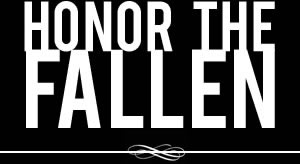
- Home
- NATO Kosovo Force
- Operation Allies Refuge
- Operation Enduring Freedom
- Operation Freedom’s Sentinel
- Operation Inherent Resolve
- Operation Iraqi Freedom
- Operation New Dawn
- Operation Octave Shield
- Operation Odyssey Lightning
- Operation Spartan Shield
- Task Force Sinai
- U.S. Africa Command Operations
- U.S. Central Command operations
- The People Behind The Sacrifice
Army Spc. Omar M. Albrak
Died May 9, 2009 Serving During Operation Iraqi Freedom
21, of Chicago; was an Individual Ready Reserve soldier assigned to the Headquarters, Multi-National Forces Iraq; died May 9 in Baghdad of injuries sustained during a motor vehicle accident.
Family meets soldier’s remains at Dover
The Associated Press
DOVER AIR FORCE BASE, Del. — Twenty-one years after Army Spc. Omar M. Albrak’s birth, his mother, aunt and uncle traveled to Dover Air Force Base in Delaware on Tuesday to meet a flag-draped transfer case containing his body.
Albrak’s mother, Susan Atooli of Escondido, Calif., said she attended the ceremony Tuesday to be close to her son.
“It was a lot harder than I thought just to see somebody come back,” Atooli said. “You think you can handle it, but it hits you a lot harder than you think.
She was sorry that she was not able to see her son’s body during the trip to Dover, but officials told her his body would be released within 72 hours.
Atooli said she last talked to her son on Friday about a credit card problem.
“We were at Disneyland, and he didn’t want to keep us,” she said. “He said he’d call tomorrow, and that didn’t happen.”
Instead, she was met at her home Saturday by an officer who told her of her son’s death.
Atooli said military officials told her that Albrak was killed earlier that day in a crash at Camp Victory in Iraq and an investigation will take about six months. A spokeswoman at the Dover base said Tuesday that details of Albrak’s death had not be released, pending notification of some of his next of kin.
Albrak’s father, Omar Albrak, lives in New York.
Albrak, who is of Yemeni ancestry, worked as a translator, she said. Some Iraqis gave him a tough time because he was of Middle Eastern descent and fighting for the United States, she said. But Atooli said he but didn’t want to be an enemy to anyone despite his Yemeni ancestry.
Atooli’s sister Helen, of Maui, Hawaii, brought a sign wishing Albrak a happy birthday. She said she wanted to show it to the media covering the ceremony.
“We wanted people to know that he came home in a casket on his birthday,” Susan Atooli said.
For 18 years, media was not allowed to cover the return of overseas casualties to Dover Air Force Base. The mortuary there is the entry point for service personnel killed overseas.
Some critics saw the ban, imposed by President George H.W. Bush in 1991 during the Persian Gulf War, as an attempt to hide the human cost of war, but officials cast it as a way to protect grieving families’ privacy.
Since the ban was lifted last month, many families, like Albrak’s, have agreed to media coverage of their loved ones’ returns.
The remains of Spc. Lukasz Saczek of Lake in the Hills, Ill., who died in Afghanistan on Sunday, arrived during the same Tuesday morning ceremony as Albrak’s.
Translator wanted to build bridges with Iraqis
The Associated Press
When Omar M. Albrak’s body returned to America, his family brought a sign wishing him a happy birthday. They said they wanted to show it to the media covering the ceremony.
“We wanted people to know that he came home in a casket on his birthday,” said his mother, Susan Atooli.
Albrak, 21, of Chicago died May 9 in Baghdad in a motor vehicle accident. His mother was told he was driving in the rain near Camp Victory when his vehicle flipped.
Helen Atooli, Albrak’s aunt, would often chat with him online or by phone.
“He loved his job. I remember when he told me he was going to extend his contract. He said ‘Don’t tell my mom.’ He felt like he was accomplishing something. He was all about bettering himself,” Helen Atooli said.
His time in the Army seemed to help him appreciate family.
“He was very loving and liked spending time with family and playing with his cousins,” his aunt said.
Albrak, who is of Yemeni ancestry, worked as a translator. Some Iraqis gave him a tough time because he was fighting for the United States, but Atooli said he didn’t want to be an enemy to anyone.
He also is survived by his father, Omar Albrak.

